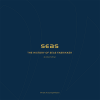Catullus and the Poetics of Roman Manhood
This book applies comparative cultural and literary models to a reading of Catullus’ poems as social performances of a ‘poetics of manhood’: a competitively, often outrageously, self-allusive bid for recognition and admiration. Earlier readings of Catullus, based on Romantic and Modernist notions of ‘lyric’ poetry, have tended to focus on the relationship with Lesbia and to ignore the majority of the shorter poems, which are instead directed at other men. Professor Wray approaches these poems in the light of more recent models for understanding male social interaction in the premodern Mediterranean, placing them in their specifically Roman historical context while bringing out their strikingly ‘postmodern’ qualities. The result is an alternative way of reading the fiercely aggressive and delicately refined agonism performed in Catullus’ shorter poems. All Latin and Greek quoted is supplied with an English translation.
• Puts Catullus’ poems in the broad context of modern (Romantic, Modernist and postmodernist) notions about poetry and the ‘lyric’ • Applies comparative, cultural anthropological material to a reading of Catullus’ poetry as social performance of selfhood in the specific context of the Late Roman Republic • Focuses on Catullus’ use of archaic and Hellenistic Greek poets as models for his own performance of Roman manhood
ContentsPreface; 1. Catullan criticism and the problem of lyric; 2. A postmodern Catullus?; 3. Manhood and Lesbia in the shorter poems; 4. Towards a Mediterranean poetics of aggression; 5. Code models of Catullan manhood; Works cited; Passages discussed; General index.
- Forlag: Cambridge University Press
- Utgivelsesår: 2007
- Kategori: Teori
- Lagerstatus: Ikke på lagerVarsle meg når denne kommer på lager
- Antall sider: 258
- ISBN: 9780521030694
- Innbinding: Heftet












